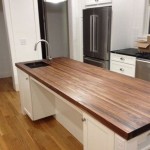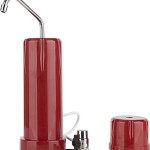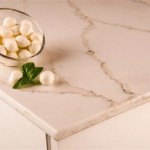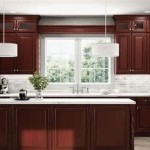Where To Get Countertop Cut
Obtaining accurately cut countertops is a critical step in any kitchen or bathroom renovation, or new construction project. The precision of these cuts directly impacts the functionality and aesthetics of the space. Knowing the various options available for sourcing countertop cuts allows individuals to make informed decisions based on their budget, timeline, and desired level of customization.
Several factors influence the final decision of where to get a countertop cut. These considerations include the type of material used for the countertop (e.g., granite, quartz, laminate, wood), the complexity of the required cuts (e.g., straight edges, curves, sink cutouts), the budget allocated for the project, and the level of DIY involvement the individual is comfortable with. Each option presented below offers different advantages and disadvantages, which must be carefully weighed against these factors.
Professional Countertop Fabricators
Professional countertop fabricators represent a comprehensive solution for obtaining precisely cut countertops. These businesses specialize in the fabrication and installation of countertops, typically working with a wide range of materials. Their expertise extends beyond simple cutting to include edging, polishing, and the creation of intricate designs.
The process typically begins with a consultation where the fabricator assesses the project requirements, including the dimensions, material selection, and specific design features. Precise measurements are crucial at this stage to ensure a proper fit. Many fabricators offer templating services, where they create a physical or digital template of the countertop area, ensuring accuracy.
Once the measurements and design are finalized, the fabricator uses specialized equipment, such as CNC (Computer Numerical Control) machines, to cut the countertop material to the exact specifications. CNC machines provide exceptional precision and repeatability, ensuring consistent results. The cutting process is followed by edging, polishing, and any other finishing touches necessary to achieve the desired aesthetic.
The primary advantage of using a professional countertop fabricator is the assurance of quality. Their expertise, combined with advanced equipment, minimizes the risk of errors and ensures a professional finish. They also handle the complexities of working with difficult materials, such as natural stone, which requires specialized knowledge and techniques. Furthermore, fabricators typically offer installation services, ensuring a seamless and properly supported countertop. However, this option often comes at a higher cost compared to other alternatives.
The cost of professional fabrication depends on various factors, including the material used, the complexity of the cuts, and the geographic location. It is prudent to obtain multiple quotes from different fabricators to compare pricing and services. Before committing to a fabricator, review their portfolio and customer testimonials to assess their quality of work and reputation.
Home Improvement Stores
Home improvement stores, such as Lowe's and Home Depot, offer countertop cutting services, primarily for laminate and solid surface countertops. While they may not have the same level of customization and expertise as professional fabricators, they provide a more accessible and potentially more affordable option for simpler projects.
Typically, the process involves selecting the desired countertop material from the store's inventory. The customer then provides the required dimensions, and the store's cutting service, often performed by trained associates, cuts the countertop to size. The available cutting services may be limited to straight cuts and basic shapes. Complex cuts, such as sink cutouts, may not be offered or may be outsourced to a third-party fabricator.
The advantages of using home improvement stores for countertop cutting include convenience and potentially lower cost. The ability to purchase the material and have it cut in the same location streamlines the process. However, the accuracy and quality of the cuts may not be as high as those provided by professional fabricators. The level of expertise of the cutting service may also vary depending on the store and the training of the associates.
This option is best suited for projects that involve simple countertop configurations and materials that are relatively easy to cut, such as laminate. For more complex projects or materials that require specialized cutting techniques, a professional fabricator is generally recommended.
When using home improvement store services, it is crucial to verify the accuracy of the measurements provided and clearly communicate the desired cuts. Inquire about the store's policies regarding errors and potential remedies in case of inaccuracies. Review sample cuts, if available, to assess the quality of the work.
DIY Cutting
For individuals with experience in woodworking or construction, and access to the necessary tools, cutting countertops themselves is a viable option. This approach offers maximum control over the process and potentially the lowest cost, but it also carries the highest risk of errors and requires significant skill and attention to detail.
Successfully cutting countertops requires careful planning, precise measurements, and the use of appropriate tools. The specific tools required depend on the countertop material. For example, cutting laminate countertops typically involves using a circular saw or a jigsaw with a fine-tooth blade. Cutting solid surface countertops may require specialized saws and routers designed for acrylic materials. Cutting natural stone, such as granite or marble, requires specialized wet saws with diamond blades.
Safety is paramount when cutting countertops. Wear appropriate personal protective equipment, including safety glasses, hearing protection, and dust masks. Ensure proper ventilation to prevent the inhalation of dust and fumes. Follow the manufacturer's instructions for operating power tools and take precautions to avoid accidents.
Before making any cuts, practice on scrap material to familiarize yourself with the tools and techniques. Mark the cutting lines clearly and accurately using a straightedge or a template. Use clamps to secure the countertop material to prevent it from shifting during cutting. Cut slowly and steadily, following the marked lines carefully. Avoid applying excessive pressure, which can cause chipping or cracking.
DIY cutting is best suited for individuals with a thorough understanding of woodworking or construction techniques and experience using power tools. It is generally not recommended for complex projects or materials that are difficult to cut, such as natural stone. Errors in cutting can be costly, as they may require replacing the entire countertop. This approach requires meticulousness, skill, and a clear understanding of the materials involved.
Specialty Woodworking Shops
Specialty woodworking shops offer another avenue for obtaining countertop cuts, particularly for wood and butcher block countertops. These shops possess expertise in working with wood and can provide customized cutting, shaping, and finishing services tailored to the specific requirements of the project.
Woodworking shops typically offer a wider range of services than home improvement stores, including custom edge profiling, shaping, and joining. They can also create intricate designs and patterns, adding a unique touch to the countertop. Their expertise extends to selecting the appropriate wood species and finishes to match the desired aesthetic and functional requirements.
The process involves consulting with the shop owner or a skilled woodworker to discuss the project details. Precise measurements are essential to ensure a proper fit. Many shops offer templating services to create accurate representations of the countertop area. The woodworker then uses specialized equipment, such as table saws, routers, and sanders, to cut and shape the countertop to the specified dimensions. The finishing process may involve sanding, staining, and applying a protective sealant.
The advantages of using a specialty woodworking shop include the assurance of quality craftsmanship and the availability of customized services. Woodworkers possess extensive knowledge of wood properties and can provide expert guidance on material selection and finishing techniques. They can also create unique designs and patterns that are not available through other sources. However, this option may be more expensive than using home improvement stores or attempting DIY cutting.
When selecting a woodworking shop, review their portfolio and customer testimonials to assess their quality of work and reputation. Inquire about their experience working with the specific wood species and finish desired. Clearly communicate the project requirements and ensure that the shop understands the desired aesthetic and functional outcomes.
Online Countertop Suppliers
The internet has expanded the options for sourcing countertop cuts, allowing individuals to purchase custom-cut countertops from online suppliers. These suppliers typically offer a wide range of materials and customization options, often at competitive prices. However, it is crucial to carefully evaluate the supplier's reputation and policies before making a purchase.
The process typically involves selecting the desired countertop material from the supplier's website. The customer then provides the required dimensions and specifies any desired cuts or features. Some suppliers offer online design tools that allow customers to visualize the finished product and make adjustments as needed. Once the order is placed, the supplier fabricates the countertop to the specified dimensions and ships it to the customer's location.
The advantages of using online countertop suppliers include convenience and potentially lower prices. The ability to shop from home and compare prices from different suppliers can save time and money. However, it is important to be aware of the potential risks associated with online purchases, such as inaccurate measurements, shipping damage, and difficulty resolving issues with the supplier.
To minimize these risks, carefully review the supplier's website and policies before making a purchase. Check their reputation and customer reviews to assess their reliability and quality of work. Ensure that they offer a clear and comprehensive warranty. Obtain samples of the countertop material to assess its quality and appearance. Verify the accuracy of the measurements provided and ensure that the supplier understands the desired cuts and features. Carefully inspect the countertop upon arrival and report any damage or discrepancies immediately.

How To Cut Countertops With Pictures Wikihow

Types Of Countertop Edges The Home

How To Cut Install Butcher Block Countertops From A Z

How To Cut Countertops With Pictures Wikihow

How To Cut Countertops With Pictures Wikihow

Quartz Marble Granite Countertops Indianapolis In Cutting Edge

How To Cut A Counter Top For New Kitchen Sink

How To Cut A Laminate Countertop For Sink Fine Homebuilding

How To Cut A Laminate Countertop For Sink Fine Homebuilding

Is It Alright To Cut Food Directly On Kitchen Countertops
See Also








